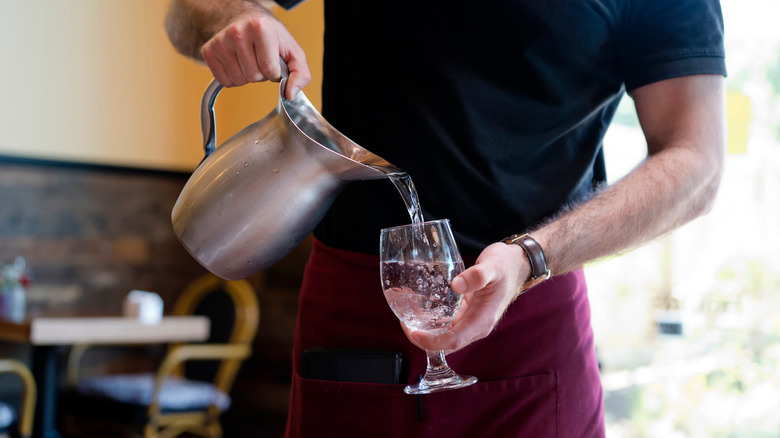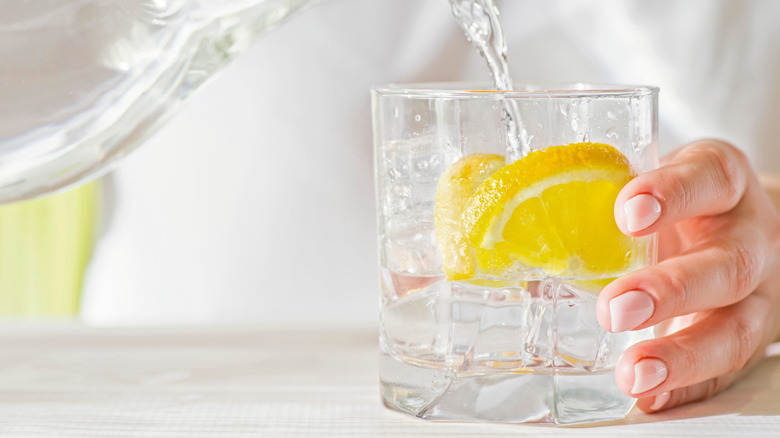Why You Should Think Twice About Drinking Water At A Restaurant
No matter where you decide to eat, be it a fancy upscale restaurant or your neighborhood Applebee's, getting water with your meal is pretty standard. It's also free, so why not drink up? Yet, according to multiple studies, there are actually plenty of reasons why you may want to be cautious. An investigative report commissioned by the Daily Mail found that you might as well be drinking toilet water. That may sound like an exaggeration, but the numbers speak for themselves. Testing samples of ice served in the beverages of major restaurant chains, lab studies confirmed that six in 10 contained higher levels of bacteria than that of what's found in a toilet bowl. It's not raw water, though it's hardly better.
Upon further investigation, researchers found that the bacteria came from a range of sources, including unwashed hands from staff, raw meat from the kitchen, and poorly cleaned ice machines. Yet, even if you opt for no ice in your drink, the hygiene risk is just as bad. A study conducted by the U.S. Environmental Protection Agency (via CNN) found that drinking water from nearly half of restaurant soda fountains was not only riddled with bacteria but also mold.
You might want to stay away from lemon wedges
What if you try adding in some lemon? Now, it's easy to taste the difference between tap water and purified water, but sometimes tap is the best you can get. If you've ever dropped in a few cut lemon wedges to mask an unpleasant flavor, unfortunately, you're doing more harm than good. A 2007 study published in the Journal of Environmental Health reveals that 70 percent of the lemons served at restaurants test positive for microbial growth. A hidden camera investigation by ABC showed that this occurs because restaurant employees don't often waste time washing the lemons or even washing their hands before handling the fruit.
According to the Journal of Environmental Health, scrubbing the surface of the lemon is effective in removing pathogenic microbes. If you add unwashed lemons to your already bacteria-infested water, however, you're basically giving yourself a germ cocktail. Even if you squeeze the juice directly into your water, studies indicate that this move isn't any better, as cross-contamination is still a risk (and did you wash your hands before squeezing the lemon wedge, while we're at it?). Let's just say you're better off requesting bottled water at a restaurant.

